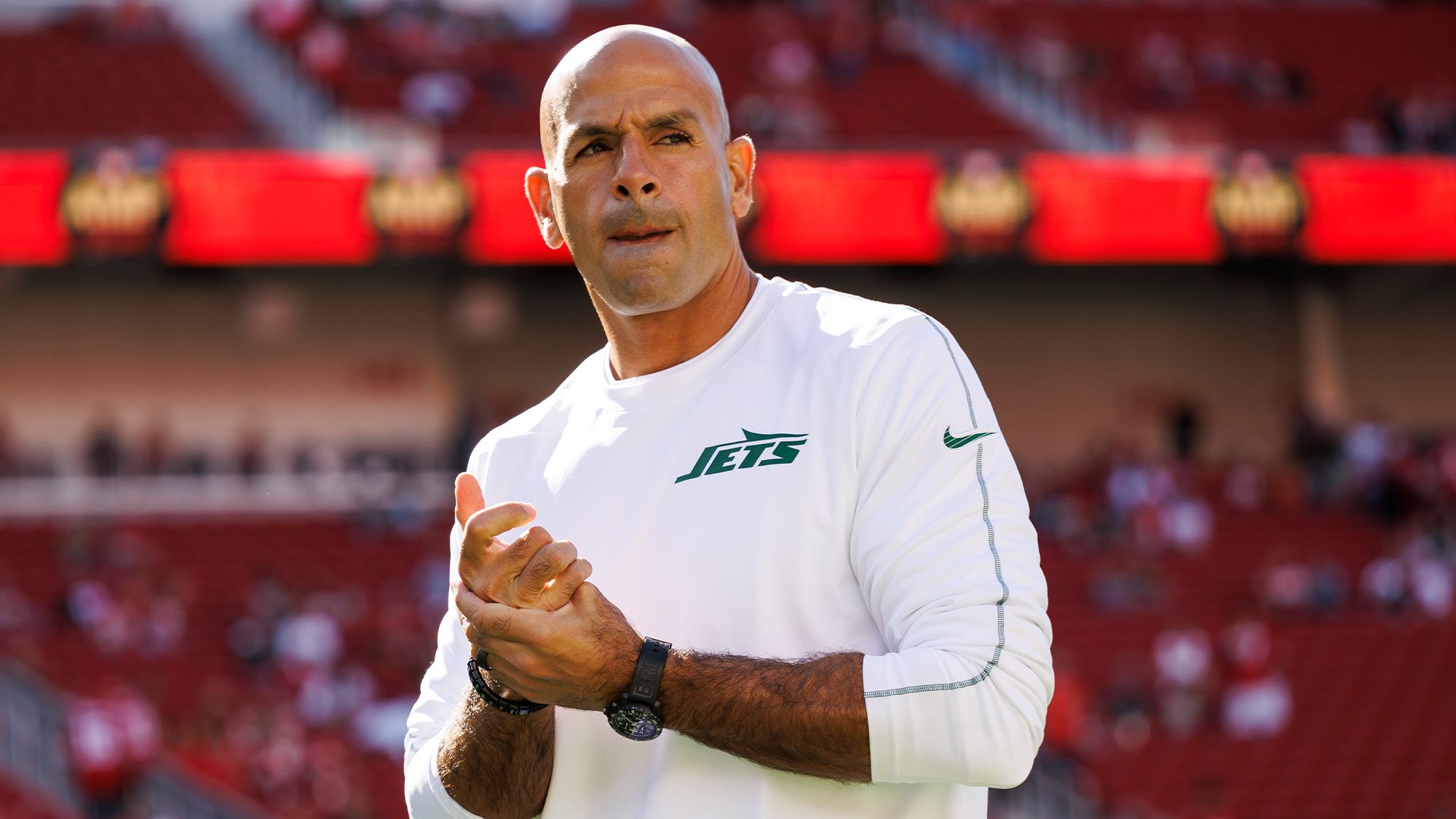As the New York Jets have fallen apart, the schadenfreude from the national NFL landscape continues to take root. Some merely enjoy the chaos of the “Same Old Jets” narrative, but many delight in Aaron Rodgers’ demise.
One talking point that has repeatedly made the rounds is that it was a tremendous mistake for the Jets to fire Robert Saleh. After all, they were 2-3 under his watch and still looked competitive, while they are 1-4 and have gone off the rails since Jeff Ulbrich took over. The easy analysis is that firing Saleh was the cause of the current dysfunction.
Visit our New York Jets News page to stay updated on the latest happenings.
Further promoting this viewpoint is the Jets’ defensive performance since Saleh left. The Jets’ defense has allowed the highest EPA per play of any team in the NFL in the five games with Ulbrich at the helm.
There are two obvious reactions to this. Either it was all Saleh’s defensive coaching to begin with, or Ulbrich cannot handle the dual responsibilities of being thrust into the head coaching role and being the defensive coordinator. Both do not speak well of the decision to fire Saleh mid-season.
At this point, it does appear that getting rid of Saleh tanked the defense. Statistically, there is no way to claim otherwise. Even some of the defensive injuries the Jets have endured (Chuck Clark going on injured reserve, D.J. Reed missing a game, Michael Carter II missing multiple games, and C.J. Mosley missing most of the season) do not necessarily correspond with the Jets’ worst games defensively.
Since most people said this beforehand, it’s not Monday morning quarterbacking. However, I will stand by what I said when Woody Johnson first fired Saleh: I think it was a last-ditch effort he needed to make.
The lack of accountability under Saleh kept getting worse, as was the unwillingness to adjust. There was the potential that Ulbrich could change both of those things. He hasn’t, but giving him a shot made sense.
Theoretically, if Saleh had been fired at the end of the season, the new coach could have chosen to retain Ulbrich as the defensive coordinator. Now, given how the defense has fallen apart, Ulbrich pretty clearly will not be back next season. Even if his new responsibilities are overwhelming his ability to call the defense properly, the seeds of dysfunction were always inherent in the Saleh/Ulbrich scheme, especially in the run game.
Jets X-Factor’s Robby Sabo broke down several plays from the Jets’ defense against Arizona showing the lack of a cohesive defensive unit. For all of the differences in results, these process issues are not new. The tackling issues are not new. The run defense issues are not new. They were present under Saleh, too, even if the Jets were better able to disguise them.
As much as firing Saleh seemed like an irresponsible swing from a reckless and impatient owner, it was, in fact, trying to overcorrect for his forbearance that had gone five games too far. Johnson made a mistake by giving Saleh a mulligan. Trying to correct it was too little, too late, but in an all-in season, it made sense to try.
Given what transpired under Saleh in the first five weeks, does any Jets fan think things would be much better with him at the helm vs. Ulbrich? Maybe the Jets would have won one more game, but since he likely would have kept Greg Zuerlein as long as Ulbrich did, even that is unlikely.
Of course, we’ll never know. Saleh has an unfalsifiable advantage: absent any evidence otherwise, he can always claim that had he not been removed, he would have won.
The two biggest disadvantages of removing Saleh both concern the future rather than the present. The Jets’ players seemed largely distraught by Saleh’s dismissal, and although they love Ulbrich, too, this could have longer-term morale effects.
More importantly, would Saleh’s mid-season removal deter a future coach from taking the job? The fact that Johnson had never fired a coach mid-season in his prior 24 years as the Jets’ owner may not override that in coaching candidates’ minds.
Never mind that Saleh ranked in the 10th percentile of win percentage among coaches in NFL history with at least 50 starts. All that matters is that Johnson pulled the trigger haphazardly — at least, according to perception.
If that becomes the deciding factor for a head coach target not to take the job, then yes, firing Saleh was a mistake. The thing is, though, that it wouldn’t inherently be Saleh’s firing that would cause it but the greater perception that Johnson meddles too much.
As Sabo indicated, Johnson must verbally step aside and let candidates know that they will run the show. If he does not, Aaron Rodgers’ free rein in the organization will dissuade candidates from taking the job just as much as (if not more than) Saleh’s firing.
Therefore, as bad as the Saleh firing looks in hindsight, I don’t necessarily think it was a colossal mistake. Does it look bad? Yes. Did it fix anything? No. Could it have fixed anything? At the time, it seemed like it possibly could.
But more importantly, what did the Jets have to lose? The Jets weren’t going to make a run under Saleh, and, barring a miracle, they’re not going to make one under Ulbrich.
So would things have appeared less dysfunctional with Saleh still at the helm? Yes. But would it have made any difference? No.
Therefore, I still do not think it was a mistake to fire Saleh. It was a stab in the dark that did not work. The Jets’ head coaching carousel will continue.

